Michael McVeigh
Jesuit Communications head of publishing and digital content
Bluey: ‘The Sign’/Inside Out 2. Those who have been following our ‘Sneaky Jesus Bluey Episodes’ series know that we’re fans of the ABC show, particularly the way it engages with important topics in a thoughtful way. Online film blogger ‘Film Crit Hulk’ published a beautiful essay earlier this year titled, ‘Yes, BLUEY Is As Good As BREAKING BAD’ (which is worth a read). While Breaking Bad is one of the critically-acclaimed shows of all-time, Bluey has the same ability to worm itself into one’s soul. But unlike more ‘adult drama’, it does that in a way that’s accessible to children, in a language that speaks directly to them. As the blogger notes: ‘It is not only so good at finding a way to dramatise the things that kids experience, but the ones that often involve difficult emotional concepts from them to grasp. And then the show brings them to life in a way that feels incredibly accessible.’
‘The Sign’ was hyped as the first long-form Bluey episode, clocking in at 30 minutes rather than the usual five. Its stakes are higher than the usual episode – the family is selling their home and facing relocation to another city. There is angst on all sides, expressed in different ways by the kids and adults. And it all comes together in a cathartic moment, which admittedly left my kids, aged 6 and 4, needing a debrief afterwards. But that’s just the thing – it gave us all an opportunity to talk and think about some of the ‘big things’ in life – what it means to have a place to live and feel secure, and a community to support us – as well as a language and framework in which to do that.
The above also applies to Pixar’s Inside Out 2, which also came out this year. In fact, we watched both the Inside Out films with our children this year, and it’s been a helpful way to talk to them about their feelings at particular moments in time, and for them to become conscious of how their actions and feelings relate to each other. Yes, both Bluey and Inside Out can speak to adults, but both are essentially made for children. As parents we’re blessed to have them.
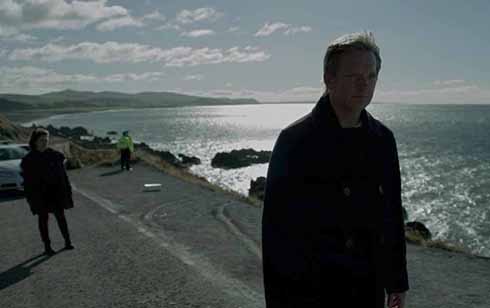 Fr Andrew Hamilton SJ
Fr Andrew Hamilton SJ
Jesuit Communications editorial consultant
Shetland. Many of the television shows I enjoy most are really quite ordinary. Shetland, for example. It is a standard crime series, with its moments of sudden action and of disclosure timed for commercial breaks, the puzzlement of police yielding gradually to understanding, and complex family relationships on all sides. In Douglas Henshall, however, it had a fine actor whose character bore on his shoulders the cares, puzzlements and ethical burdens of the whole community. In this year’s series, however, he has gone, and the despatching of bodies and intrusion of Glasgow hoods, usually a sign of mistrust in storytelling, are more frequent. But the real charm of the series remains. It lies in the space and time given to contemplate the Shetland landscape, craggy, always close to the sea, with houses that seem to battle the winds, and green treeless fields.
Ida. The best film I saw this year was made more than 10 years ago. It was Ida, filmed in Poland by an émigré Polish director. It is a deeply contemplative black and white film set in the austere world of a convent and travel over endless, treeless Polish plains and inhospitable villages. It is full of silences as it dwells on a land laden with a history that enjoins silence. Ida is a young religious sister who was left in the convent as a child during the Nazi Occupation, and is now about to take her vows. Her superior instructs to travel to meet her aunt Wanda, of whose existence she does not know. Wanda, is Jewish, had joined the partisans during the war, became a judge under the Communist regime, and is now bleakly cynical. Wanda tries to shock Ida out of innocence, but agrees to go with her to discover what had happened to her parents. Their time together is marked by long silences, uncovers the stories of Ida’s parents and Wanda’s small son at the hands of the Polish family to whom they had been entrusted for safe keeping. At the end of the film Ida takes off her veil and sleeps with a pop musician, before returning, at least for a time, to the convent as a woman with a family and national history.
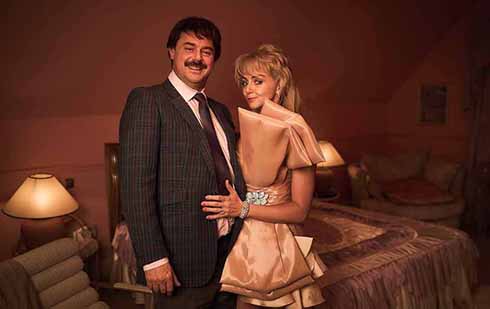 Michele Frankeni
Michele Frankeni
Australian Catholics editor
Funny Woman (Binge) and Rivals (Disney) are luscious-looking period pieces set in the 1960s and 1980s, respectively. Funny Woman is about a young woman from Blackpool (Gemma Arterton) who dreams of being a comedian in the vein of Lucille Ball. With a few setbacks here and there by the end of the first series she has taken London by storm. In this year’s second series there are explorations of the power of the media, family secrets, social mores and the struggle for women to have a voice. However, despite being about a comedian it’s not laugh out loud humorous. That honour belongs rather to the more serious-sounding Rivals. Based on the 1988 novel by English author Jilly Cooper, Rivals is about powerful men battling for a licence to run a local English county area TV station. It’s eight episodes of outrageous money, power, class warfare, infidelity and ludicrous fashion.
Funny Woman and Rivals touch on many social justice issues of the day – homosexuality, women in the workplace (and consequent sexual politics), corruption, power politics (and politics itself). Both manage to make these eras look like great times to visit. Indeed, Rivals was so much fun I reread Cooper’s book. That, however, confirmed for me something that had been hovering regarding both series. While the fashions and issues are grounded in the time periods, the treatment of them is affected, consciously or unconsciously, by a 21st-century mindset. The aesthetics are right but the treatment is a little off. It’s a bit like an ethnic restaurant at the turn of the millennium. The flavour is there but it’s not quite authentic – there’s a necessary catering to Western tastes. Still, there are a lot worse ways to experience some fascinating 20th-century decades.
Laura Kings
Assistant editor education and youth Australian Catholics
Dark Winds series 2 (SBS) features gripping storytelling and groundbreaking representation. Based on Tony Hillerman’s Leaphorn & Chee novels, the show follows two tribal police officers on a Navajo reservation in the 1970s as they solve mysteries while navigating cultural identity and systemic challenges. A key strength is commitment to Native American representation. Most of the cast, including star and executive producer Zahn McClarnon, are Native American. McClarnon, known for Fargo and Westworld, has called it a ‘dream come true’ to tell authentic native stories in a genre traditionally dominated by non-native voices.
The creators of Dark Winds prioritised cultural accuracy, making it a valuable example for Australian TV producers. The show demonstrates the importance of centring marginalised voices both on-screen and behind the scenes. The show’s production values are also exceptional. The American Southwest’s stunning landscapes help immerse viewers in the reservation setting. Australian producers can learn from this approach by using the diverse Australian terrain to create similarly immersive narratives. With McClarnon’s compelling performance and a deep exploration of crime, identity, and culture, Dark Winds is a powerful example of how to tell both culturally rich and captivating stories.

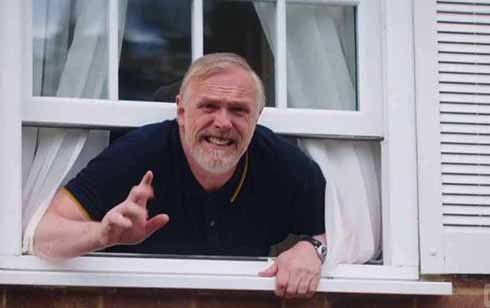 The Cleaner (ABC, BBC), created by and starring Greg Davies, is a charming British comedy that blends humour and empathy. Based on the German series Der Tatortreiniger, it follows Wicky, a crime scene cleaner, as he encounters quirky characters while removing traces of death and disaster. Though the first few episodes may seem uneven, the show’s true charm emerges as it progresses.
The Cleaner (ABC, BBC), created by and starring Greg Davies, is a charming British comedy that blends humour and empathy. Based on the German series Der Tatortreiniger, it follows Wicky, a crime scene cleaner, as he encounters quirky characters while removing traces of death and disaster. Though the first few episodes may seem uneven, the show’s true charm emerges as it progresses.
Davies, known for The Inbetweeners and Taskmaster, brings warmth and wit to the role of Wicky. Each episode tells a self-contained story, filled with absurdity and emotion, often featuring notable guest stars such as David Mitchell and Helena Bonham Carter. The Cleaner showcases the power of empathetic storytelling, proving that even in the most unusual situations, there’s room for connection and understanding. Davies’ writing elevates the show beyond typical comedy, transforming it into a celebration of life's complexities, full of humour, heart, and reflection.
Honourable mention: Question Everything (ABC) – Wil Anderson, Jan Fran, and Australia’s top comedic talent offer sharp takes on the latest news with wit and humour. The show’s chemistry has developed into something special, making the latest season a standout, delivering laughs and insights.
David Halliday
Eureka Street editor
Hit Man. I know what you’re about to say – and you’re right – but just hear me out. There are half-a-dozen standout films from 2024 that really deserve to be here, but I’m going rogue with this surprise contender. OK, let’s start with the obvious: Hit Man looks like semi-disposable Netflix trash; at best, a mildly diverting way to waste 90 minutes while you scroll Black Friday deals. Honestly, I went into this with gutter-level expectations, so imagine my delight when they were so pleasantly subverted. Hit Man is a high-concept rom-com-drama about awkward IT consultant Gary Johnson who, while contracting for police, poses undercover as a hitman in low-level sting operations. Loosely based on a true story, it stars Glenn Powell (the man is having an astonishing year) who plays Gary with chameleonic energy, effortlessly switching from awkward nerd to suave assassin. On a sting, he meets Madison (Adria Arjona) a woman trying to off her abusive husband. Instead of arresting her, formerly shy Gary toys with taking the law into his own hands. Is this a rom-com? Drama? Vigilante fever dream? Much like its protagonist, it’s a film that doesn’t want to be neatly categorised, which is possibly why it works. And while box office draws don’t tend to contain much in the way of Big Ideas, Hit Man explores the ethics of self-reinvention and poses some unsettling questions about what constitutes justifiable homicide. It’s peppered with moments of improv, adding to the film’s devil-may-care energy, and the two leads have phenomenal chemistry. Indie legend Richard Linklater could have easily phoned this one in, but instead proved he is one of the few remaining directors in Hollywood with anything that might be called an original vision. Linklater’s tone-perfect writing, coupled with Powell’s loveable ‘gym bro’ charisma, elevated what should have been forgettable mush. This film had absolutely no right to be as good as it was. It’s clever without being smug, fun without being inane, and just serious enough to feel like it matters. It won’t change the world or push the art form forward, but Hit Man was a welcome reminder that in 2024, movies still can be – and probably should be – oddly enjoyable.
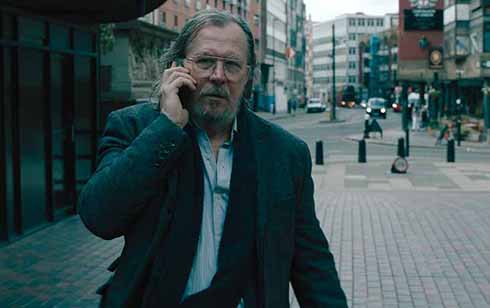 Slow Horses was the pick of the bunch for TV shows this year, but in retrospect, I’m not sure it should have been. I watched all four seasons in close succession, and the fourth season, released in October, was probably the weakest. It spectacularly failed to play to the strengths of the show, namely Gary Oldman as the repugnant, misanthropic genius spy. He’s barely in season four, and shame on the showrunners for that. Amid a bumper crop of pretty ‘mid’ shows this year, Slow Horses stood out as the one I would look forward to watching. Unfortunately, it doesn’t ever equal the high mark it reached during the sublime games of 3D chess played between veteran Cold War spymasters in season two. Season four was engaging, sure. But it was also a bit silly, a bit melodramatic, and executed in a way that felt a bit rushed. In retrospect, the plot felt as contrived as Hugo Weaving’s accent, and the story was riddled with more holes than the surface of Diamond Creek Road, which is starting to look positively lunar. But for the gift of the previous three seasons, we’ll forgive Slow Horses this one. Because when Gary Oldman appears, the screen feels charged with an intensity that reminds us of the show’s potential — a reminder of what excellence looks like in a year of television too often content with mediocrity.
Slow Horses was the pick of the bunch for TV shows this year, but in retrospect, I’m not sure it should have been. I watched all four seasons in close succession, and the fourth season, released in October, was probably the weakest. It spectacularly failed to play to the strengths of the show, namely Gary Oldman as the repugnant, misanthropic genius spy. He’s barely in season four, and shame on the showrunners for that. Amid a bumper crop of pretty ‘mid’ shows this year, Slow Horses stood out as the one I would look forward to watching. Unfortunately, it doesn’t ever equal the high mark it reached during the sublime games of 3D chess played between veteran Cold War spymasters in season two. Season four was engaging, sure. But it was also a bit silly, a bit melodramatic, and executed in a way that felt a bit rushed. In retrospect, the plot felt as contrived as Hugo Weaving’s accent, and the story was riddled with more holes than the surface of Diamond Creek Road, which is starting to look positively lunar. But for the gift of the previous three seasons, we’ll forgive Slow Horses this one. Because when Gary Oldman appears, the screen feels charged with an intensity that reminds us of the show’s potential — a reminder of what excellence looks like in a year of television too often content with mediocrity.
Peter Malone
Australian Catholics movie critic
Io Capitano, Italy. Two 16-year-old cousins dream of life in Europe. They do odd jobs to get money for their passage to Europe and undertake the perilous trek from the Senegalese coast to the border with Niger, through the desert then to the Libyan border, paying corrupt officials along the way. One aspect of the story is that smugglers get the youngsters to steer the boats on the Mediterranean, perhaps banking on more tolerance of the boats by the Italian Coast Guard. Which means that Seydou after brief instructions about gears and guidance, is the captain, Io Capitano – hence the title. At times exhilarated at others overwhelmed by the immense responsibility for the passengers including a pregnant woman and his cousin. We are with him when he passes the lights of oil rigs, and eventually reaches the Italian coast where the film ends. We have shared the journey. And we know the hardships that the entry into Europe will bring.
Perfect Days, Japan/ Germany. A film about the goodness of human nature, kindness, human dignity from German director, Wim Wenders. We are in the world of ordinary Japanese life. There is the vivid background of modern-day Tokyo, streets, high-rise, parks, diners, simple apartments – the benign face of Hirayami driving his truck on his way through the streets of Tokyo to clean toilets, meticulous and thorough. He is content, reclusive, and driven by his routines, repeated each day. He wakes, folds his bed and blanket, cleans his teeth, opens the door, smiles at the sky, gets coffee from the vending machine. We see him in his truck, cleaning equipment, and on his rounds, sometimes at a laundry, a sandwich in the park for lunch. He loves photographing the sky, the trees and leaves, watching characters in the park. Then a regular meal at a diner, home, reading, shelves of books in his spartanly comfortable apartment. Wenders shows great empathy for his character, a gentle Everyman figure, rarely speaking. We like and admire him.
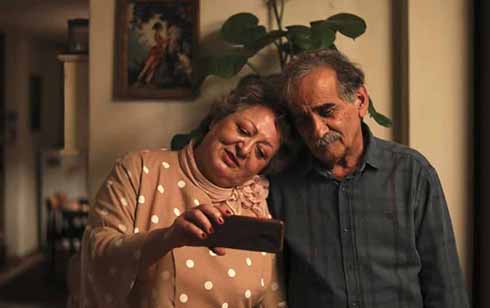 Peter W Sheehan
Peter W Sheehan
Australian Catholics movie critic
The Zone of Interest: This international historical drama was released in Australia early in 2024 after winning the Grand Prix and FIPRESCI Award at the 2023 Cannes Film Festival. The film dispassionately communicates how human beings can become complicit in horrific crimes, and is a dramatic account of brutal crimes against the Jewish people committed by the Nazi regime. Distinctively, the film is fiercely aural, and gives a different film depiction of Nazi brutality and atrocity. It exposes viewers to the sounds of furnaces firing, gunshots, and the noises made by human beings in distress. Of all the 2024 movies, I find it is the most chilling one to forget. This is a well-directed and acted account of Nazi atrocity, coldly delivered, and its lack of sentimentality is utterly effective. The film makes excellent use of sonorously impressive music and walled-grey-spaces.
My Favourite Cake: This Iranian film is a much gentler movie than The Zone of Interest, but very powerful in its own way. It gives a moving and realistic picture of the plight of Iranian women seeking freedom of expression in Iran. The movie reflects a culture that is defined by a strict political and moral code and it gives a telling account of a society’s failure to respect and understand women’s rights. It depicts the burgeoning attraction between a 70-year-old woman in Tehran and an elderly taxi driver who takes her home in his taxi, and responds to her invitation to invite him into her home. This is a tender and humane film, that is sensitively evocative. As with The Zone of Interest, it is a quality film that probes and addresses injustice and affirms the value of finding and cementing human connectedness. It won the Ecumenical Jury competition, and received the FIPRESCI Prize at Berlin’s International Film Festival in 2024.